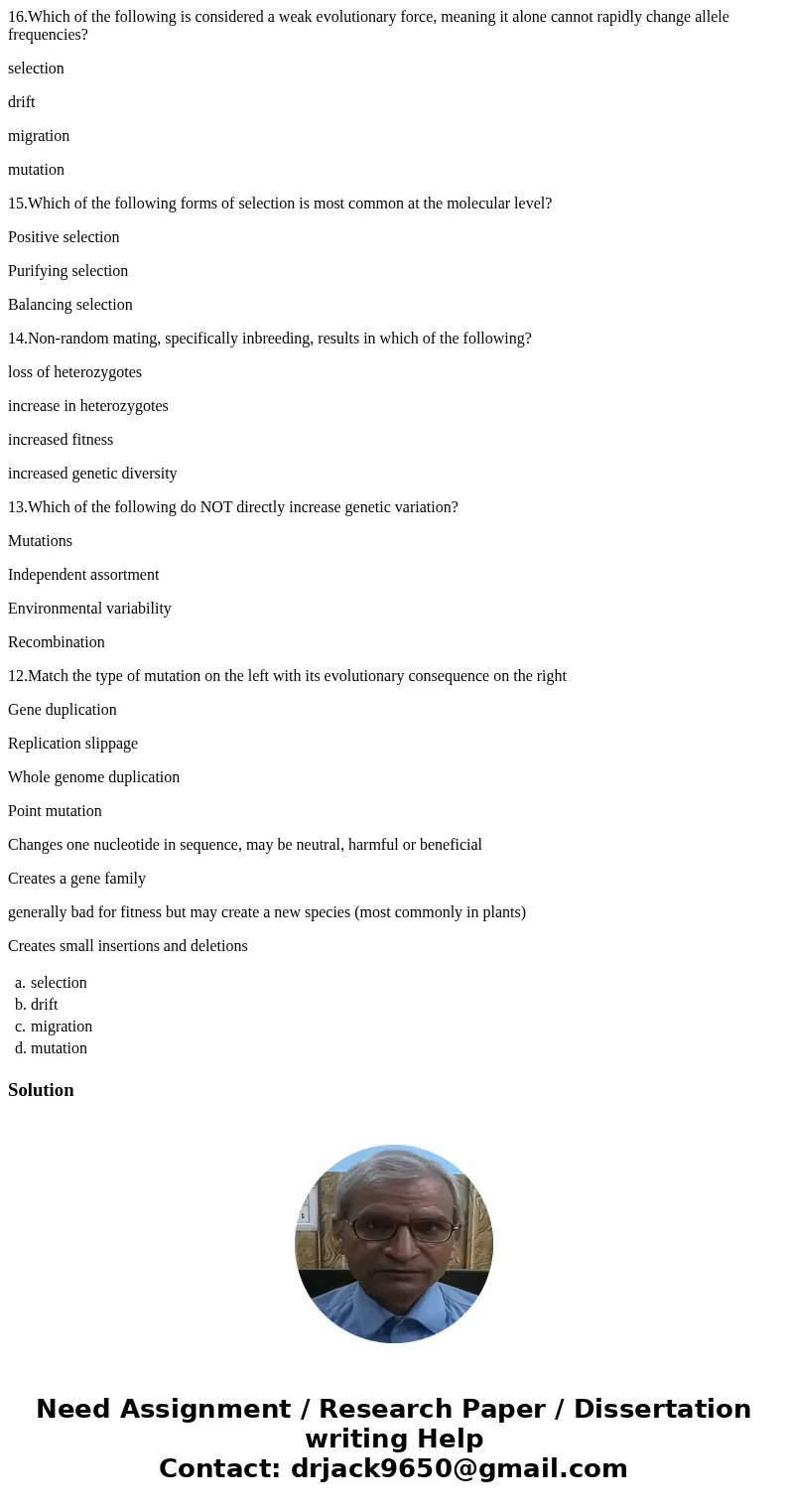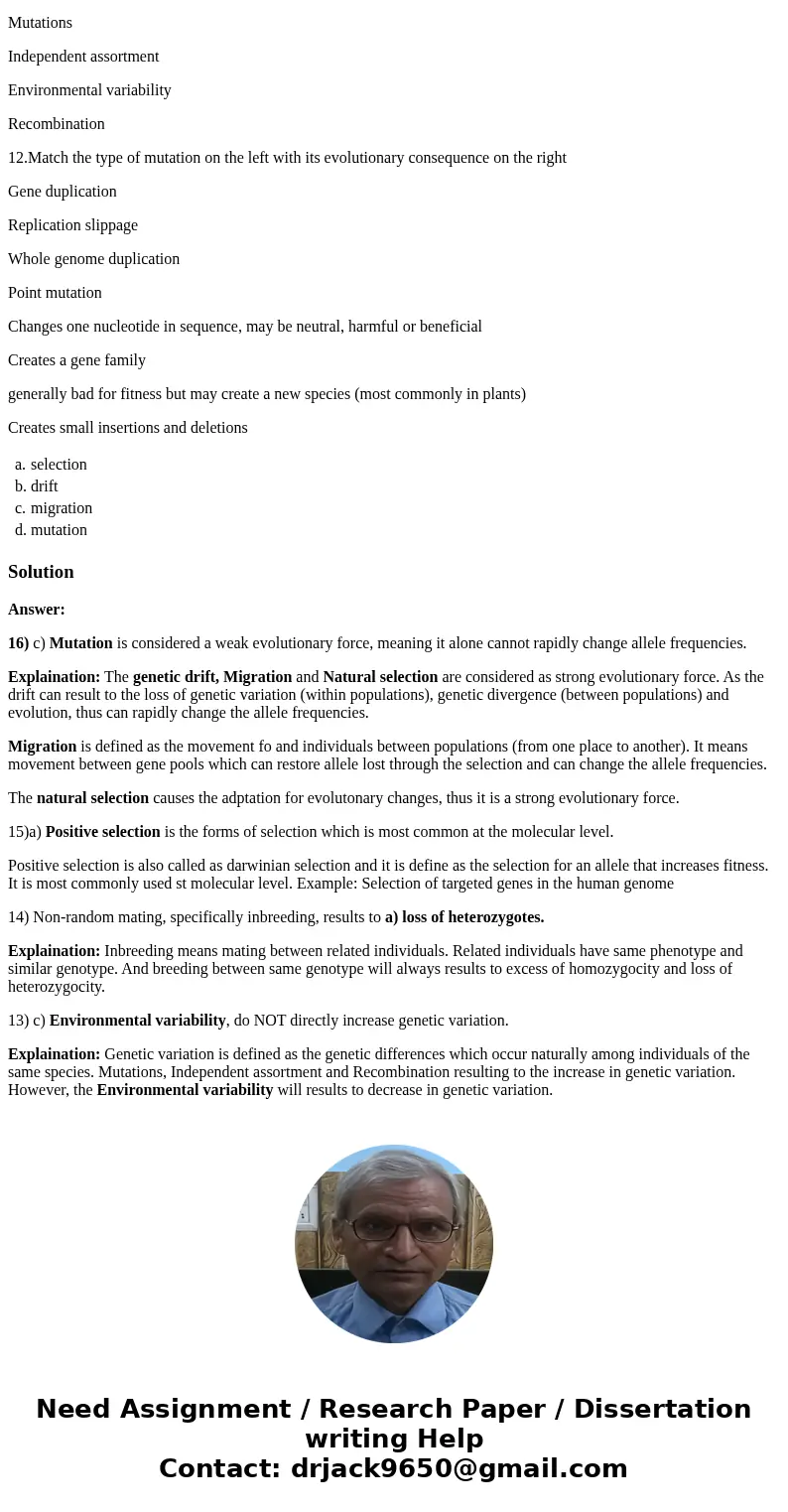16Which of the following is considered a weak evolutionary f
16.Which of the following is considered a weak evolutionary force, meaning it alone cannot rapidly change allele frequencies?
selection
drift
migration
mutation
15.Which of the following forms of selection is most common at the molecular level?
Positive selection
Purifying selection
Balancing selection
14.Non-random mating, specifically inbreeding, results in which of the following?
loss of heterozygotes
increase in heterozygotes
increased fitness
increased genetic diversity
13.Which of the following do NOT directly increase genetic variation?
Mutations
Independent assortment
Environmental variability
Recombination
12.Match the type of mutation on the left with its evolutionary consequence on the right
Gene duplication
Replication slippage
Whole genome duplication
Point mutation
Changes one nucleotide in sequence, may be neutral, harmful or beneficial
Creates a gene family
generally bad for fitness but may create a new species (most commonly in plants)
Creates small insertions and deletions
| a. | selection | |
| b. | drift | |
| c. | migration | |
| d. | mutation |
Solution
Answer:
16) c) Mutation is considered a weak evolutionary force, meaning it alone cannot rapidly change allele frequencies.
Explaination: The genetic drift, Migration and Natural selection are considered as strong evolutionary force. As the drift can result to the loss of genetic variation (within populations), genetic divergence (between populations) and evolution, thus can rapidly change the allele frequencies.
Migration is defined as the movement fo and individuals between populations (from one place to another). It means movement between gene pools which can restore allele lost through the selection and can change the allele frequencies.
The natural selection causes the adptation for evolutonary changes, thus it is a strong evolutionary force.
15)a) Positive selection is the forms of selection which is most common at the molecular level.
Positive selection is also called as darwinian selection and it is define as the selection for an allele that increases fitness. It is most commonly used st molecular level. Example: Selection of targeted genes in the human genome
14) Non-random mating, specifically inbreeding, results to a) loss of heterozygotes.
Explaination: Inbreeding means mating between related individuals. Related individuals have same phenotype and similar genotype. And breeding between same genotype will always results to excess of homozygocity and loss of heterozygocity.
13) c) Environmental variability, do NOT directly increase genetic variation.
Explaination: Genetic variation is defined as the genetic differences which occur naturally among individuals of the same species. Mutations, Independent assortment and Recombination resulting to the increase in genetic variation. However, the Environmental variability will results to decrease in genetic variation.


 Homework Sourse
Homework Sourse